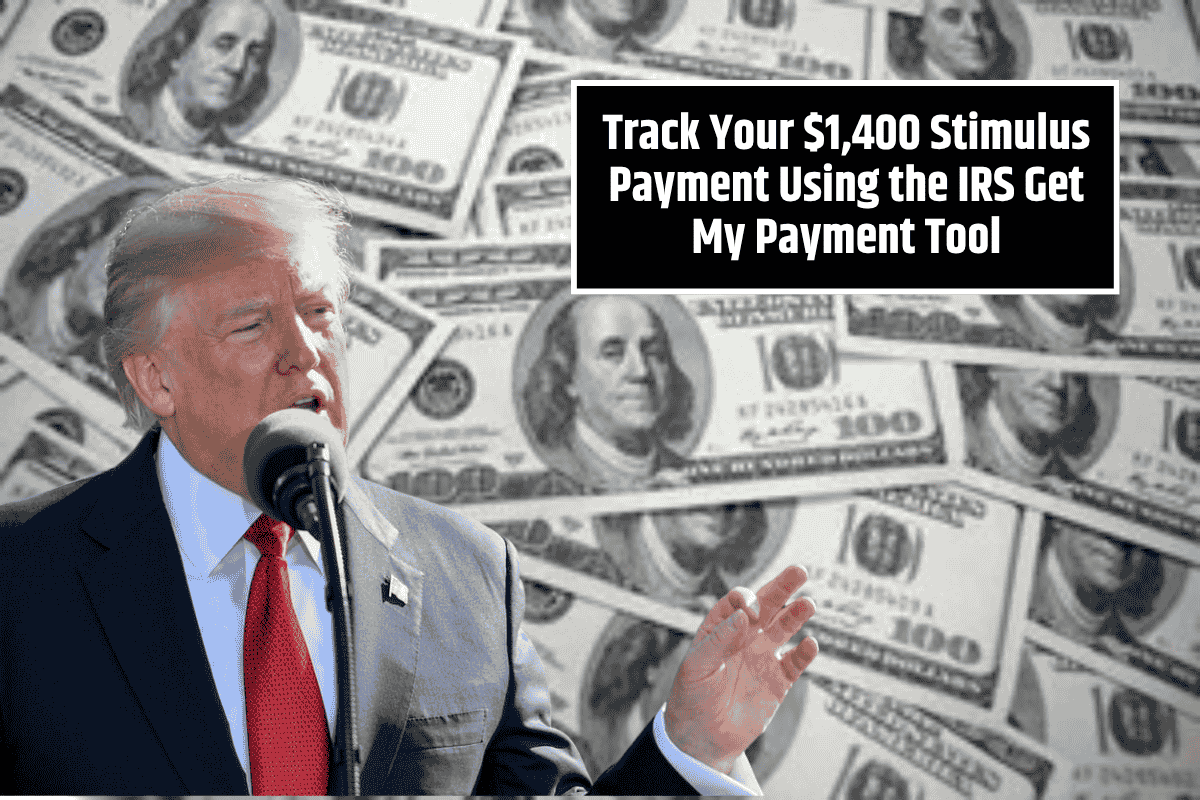The $1,400 stimulus payment, part of the American Rescue Plan Act of 2021, provided essential financial relief to millions of Americans. If you are still waiting for your payment or need to track it, the IRS Get My Payment tool was the primary method for checking the status of your stimulus check.
This article outlines how to track your payment, claim a missing one, and what to do if you haven’t received your check.
How to Track Your $1,400 Stimulus Payment
1. Use the IRS Get My Payment Tool
The IRS Get My Payment tool was the fastest way to check your payment status. Although this tool is no longer active as of 2023, you can still verify your payment status with the following steps:
Log in to your IRS Online Account
Go to the IRS Online Account.
Sign in or create an account if you don’t have one.
Under the “Economic Impact Payment Information,” check your payment history.
Review IRS Notices
The IRS sent Notice 1444-C to recipients who received the $1,400 payment. If you misplaced it, you can request a tax transcript from the IRS website.
Check Your Bank Account
Payments were issued via direct deposit, paper checks, or prepaid debit cards (EIP Cards).
Look for deposits labeled IRS TREAS 310 TAXEIP3 on your bank statement.
Request a Tax Transcript
You can go to Get Transcript Online to view your payment history.
2. Who Was Eligible for the $1,400 Stimulus Payment?
The eligibility for the third stimulus payment was based on income and dependent status:
Individuals: Earned ≤$75,000 (phased out at $80,000).
Married Couples: Earned ≤$150,000 (phased out at $160,000).
Head of Household: Earned ≤$112,500 (phased out at $120,000).
Dependents: Each dependent qualified for an additional $1,400.
If your income exceeded these limits, your payment may have been reduced or eliminated based on a sliding scale.
What to Do If You Didn’t Receive Your $1,400 Stimulus Payment
If you didn’t receive your payment, here are the steps you can take:
1. Check Your IRS Account for Payment Status
Visit your IRS Online Account to review your tax records. If no payment is recorded, you may need to claim the Recovery Rebate Credit.
2. Claim the Recovery Rebate Credit
If you didn’t receive your stimulus payment or received less than expected, you can claim it on your 2021 tax return as a Recovery Rebate Credit:
How to Claim:
File a 2021 tax return (Form 1040 or 1040-SR) if you haven’t already.
Use Line 30 to enter the amount of stimulus money you should have received.
The IRS will apply the credit to taxes owed or issue a refund.
Deadline: April 15, 2025.
3. Request a Payment Trace if IRS Records Show It Was Sent
If the IRS shows that your payment was sent but you didn’t receive it, you can initiate a payment trace:
How to Initiate a Payment Trace:
Call the IRS at 800-919-9835.
Mail or fax Form 3911 (Taxpayer Statement Regarding Refund) to the IRS.
If the check was cashed by someone else, the IRS will send a claim package for fraud investigation.
Common Issues and Solutions
1. Your Payment Was Sent to the Wrong Bank Account
If your payment was sent to a closed or incorrect bank account, it should have bounced back and been reissued as a paper check or debit card. If this didn’t happen, you can claim the payment through the Recovery Rebate Credit.
2. Your Stimulus Check Was Lost or Stolen
If your paper check was lost, stolen, or destroyed, you will need to request a payment trace with Form 3911.
3. You Didn’t File Taxes in 2019 or 2020
Non-filers had to submit information using the IRS Non-Filers Tool, which is now closed. If you missed it, you must file a 2021 tax return to claim your payment.
The $1,400 stimulus payment was an essential financial lifeline for many Americans. If you haven’t received your payment, it’s not too late to claim it through the Recovery Rebate Credit by filing a 2021 tax return.
If the IRS shows your payment was issued but you didn’t receive it, a payment trace may be required. By following these steps, you can track your stimulus payment and ensure you receive the relief you’re entitled to.
